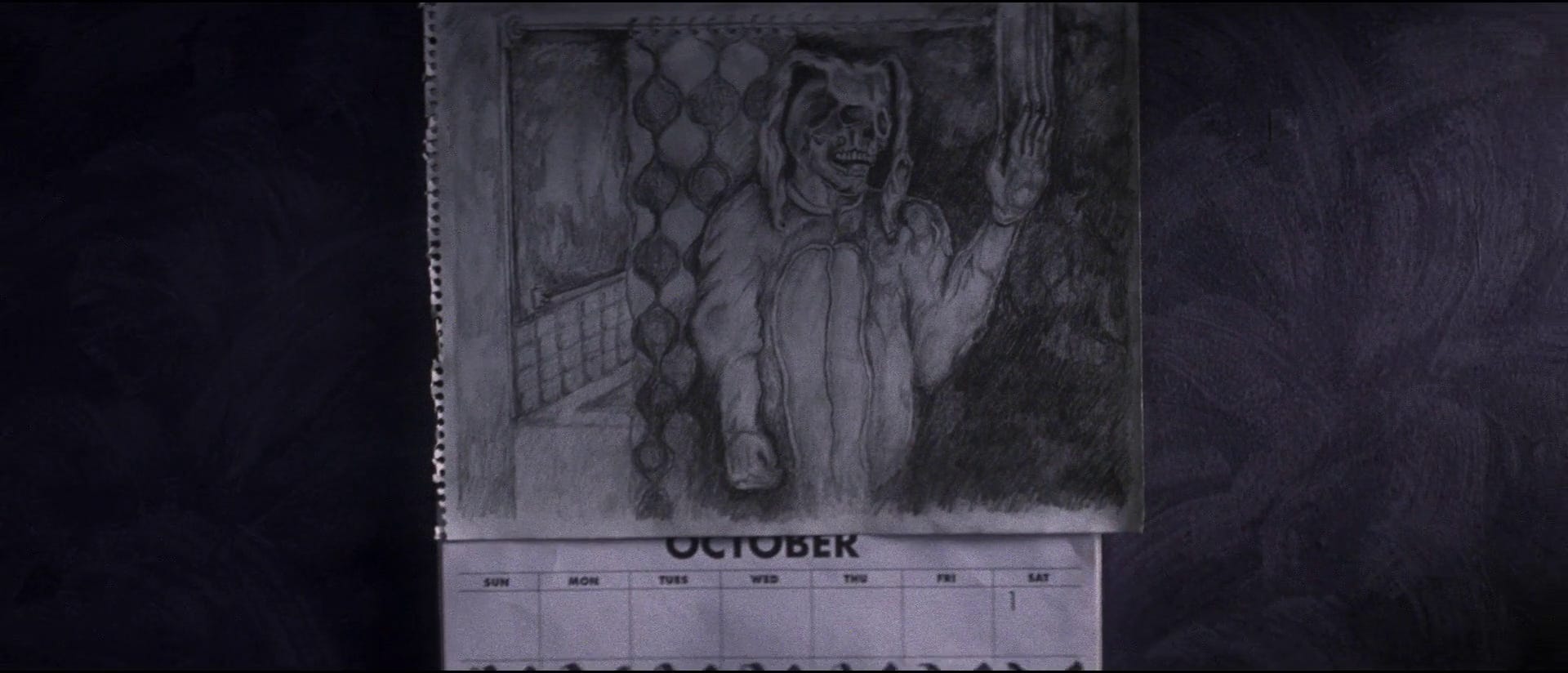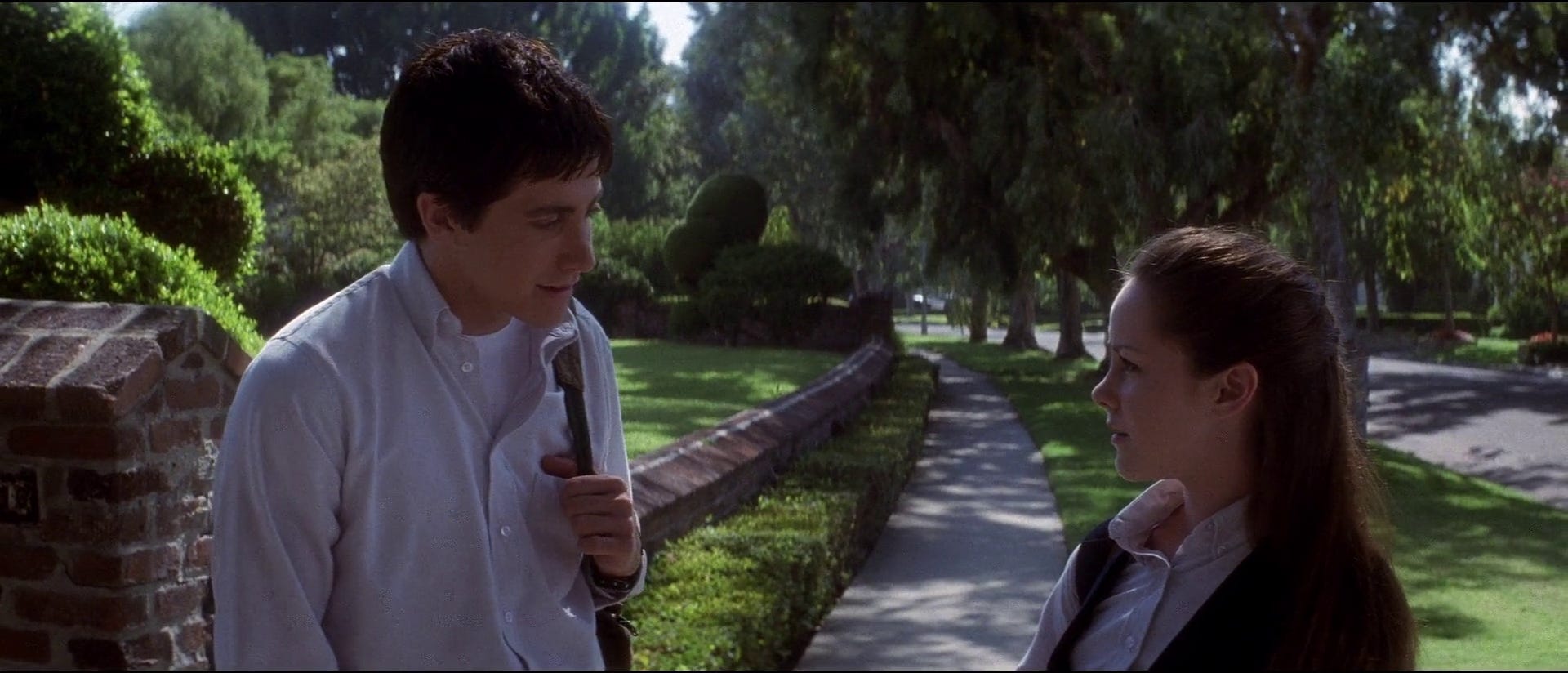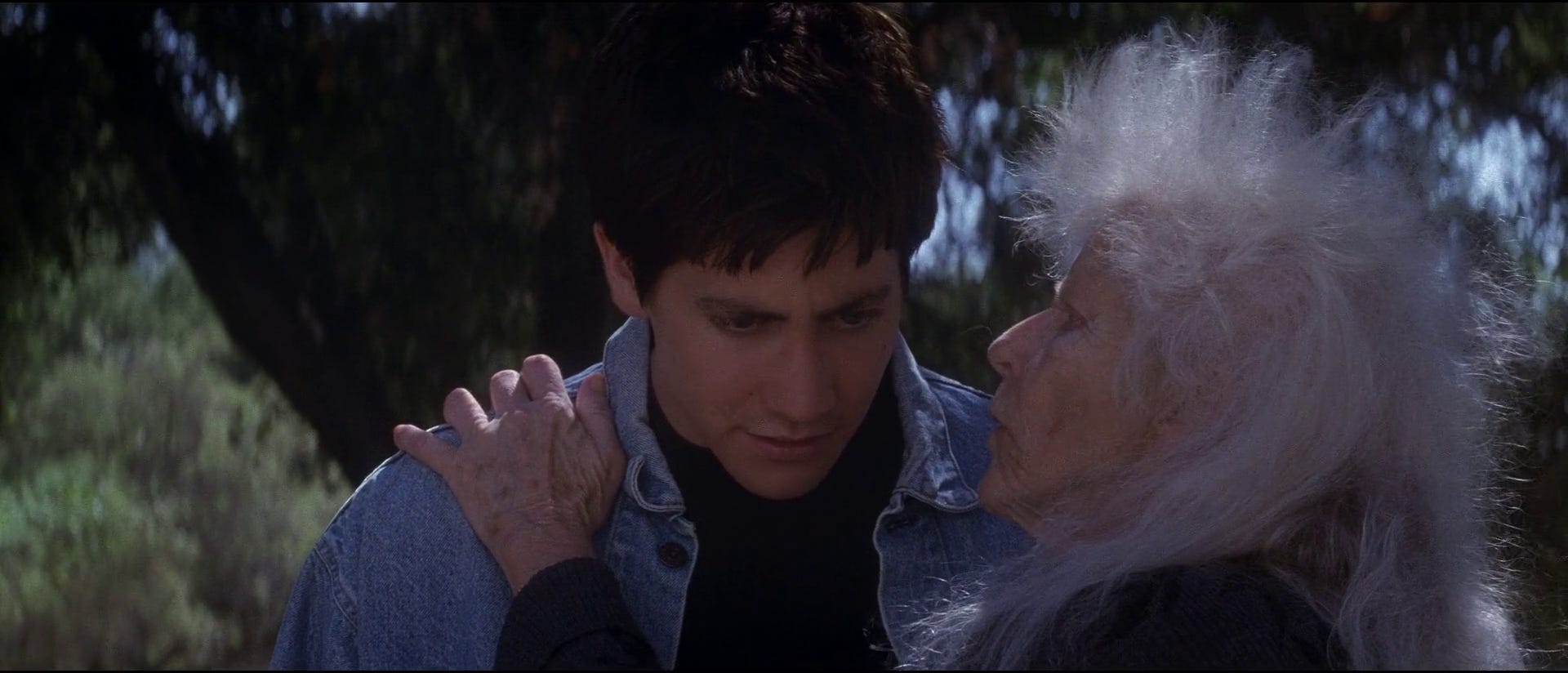Donnie Darko: Science Fiction Which Speaks to Adolescent Anxieties and Exposes the Hollowness of Adult World
How does it feel to have a wacko for a son?
Donnie Darko (2001) is a sci-fi movie that, uncharacteristically for the genre movies, grazes on a variety of subjects: mental health, loneliness, literature, truth, fear, authenticity, facade of morality, heroism, coming-off-age experience, teenage romance, and school education, among many more, and it does it so well by positioning its bizarre world-saving plot in a quiet sunny suburban town with seemingly ordinary (yet not entirely ordinary) people. Donnie, played with hypnotic intensity by Jake Gyllenhaal, is the eponymous protagonist: brooding and edgy, whether owing to the prescription meds he has been taking, or without them, hard to say. He has had brushes with destructive behavior, as hinted in the film.
He is troubled by visions of a man in a rabbit suit who speaks to him about a coming apocalypse. Is Donnie schizophrenic? Or is it real? A movie about a mentally ill protagonist naturally has to leave room for all sorts of interpretations. Is anything real in this film? Entirely possible.
The film is an excellent example of a time travel story with its own internally consistent logic (others that come to mind are ‘Harry Potter and the Prisoner of Azkaban’ and the zenith of all time travel fiction: the German TV show ‘Dark’), and as a fan of sci-fi, I delight in the rabbit hole of rules and principles contained within the book ‘The Philosophy of Time Travel’ provoking us to piece together the clues and do the mental gymnastics for the payoff. Frank (the name of the rabbit figure) says to Donnie at one point — “Pay close attention. You could miss something.” It might just as well be said to the audience. But that is not the reason why this is one of my favorite films. It is because this film offers a lot more than a brain tease. It doubles as a social commentary on how the world of adults is stacked with hypocrites, often in positions of authority, spewing their moralistic nonsense until the imposition completely marginalizes any originality and free thinking.
Donnie likes to write and draw; he is precocious for his age. In this regard he is similar to another literary hero of mine, Holden Caulfield from ‘The Catcher in the Rye’. Both are free thinkers, both like to write, and both find themselves surrounded by adults they find insufferable phonies. Both love English as their favorite subject. A lot of good books are referenced in the film. It introduced me to Graham Greene and his story: The Destructors, and Watership Down by Richard Adams.
The movie depicts a blossoming teenage romance. Donnie meets Gretchen in his class, a girl who has moved to his town to escape from her violent stepdad. Gretchen sits next to Donnie upon being instructed by the teacher (the adorable Drew Barrymore) to ‘sit next to the boy you find the cutest’. The scenes are raw and sweet in a very authentic way. They get to know each other. Both characters have been traumatized by a sick mind. Donnie, his own; Gretchen, her stepfather’s.
I am glad school is flooded today.
Why is that?
Because you and I had never had this conversation
Fate has a role to play. In a heartbreaking twist ending, Gretchen wouldn’t even remember Donnie, once he has ‘saved’ his world from the anomaly and reset the events of the film. It kills me (to quote Holden Caulfield).
Donnie Darko is a great film. I have seen it enough times to remember every frame. It resonates with me. So much joy, sorrow, empathy, truth, and pain is contained in this film. I love the film — the story, the incredible casting and direction, and the raw and boundless vulnerability it embodies. The closing credits feature Gary Jules’s version of ‘Mad World’, a favorite song with its gorgeous lyrics about the feverish, desperate lives people lead. When the chords of ‘Mad World’ start to play out as the screen reveals that Donnie (played by Jake Gyllenhaal) has sacrificed his own life to save the lives of others, it makes my heart stop. The power of the scene is amplified a hundred folds by the song which plays as a fitting tribute to the film built on fascinating subjects of adolescence, fate, determinism, physics of time and space, hypocrisy of adults, meaning of life, dreams and so much more.
On its own, ‘Mad World’ expresses the circularity of life in such beautiful and tragic fashion that I can say it shaped my worldview, and it made me realize that the madness I saw around me was real too. People can go on living their lives in suspended animation; if I find myself screaming inside at the absurdity of it all, that is okay, because that is perhaps the sane response.
And I find it kinda funny,
I find it kinda sad
The dreams in which I’m dying
are the best I’ve ever had.
Donnie knows what is to come. He asks his mother:
How does it feel to have a wacko for a son?
It feels wonderful.
So she answered.






